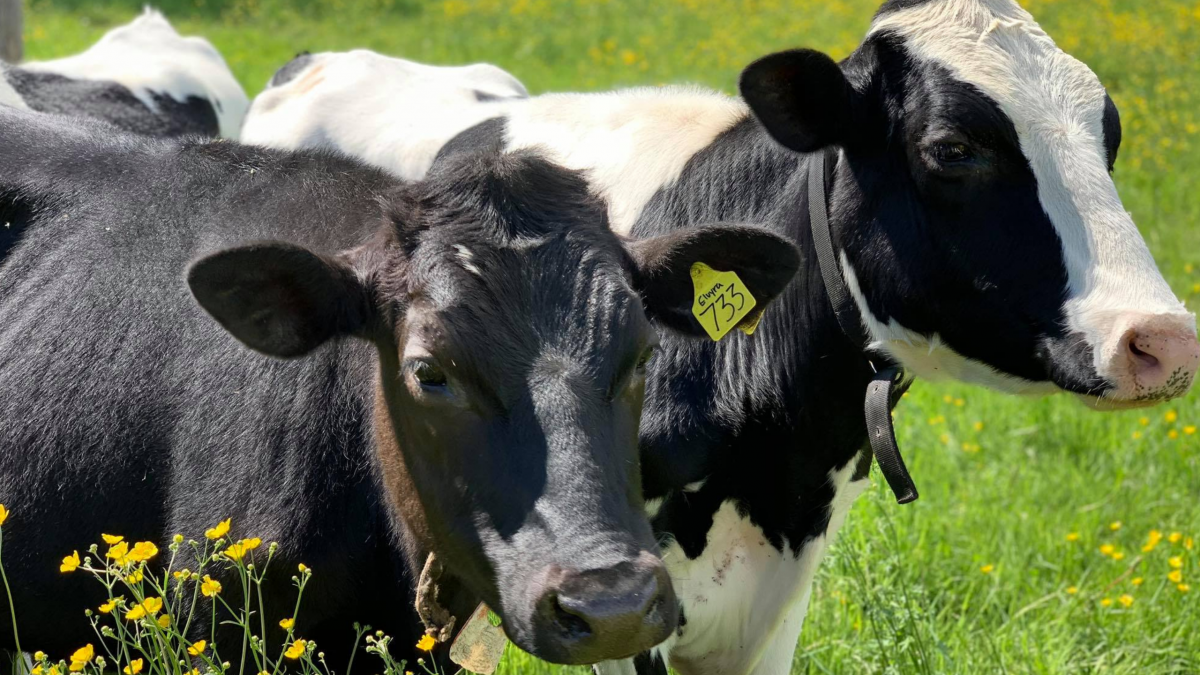 The Northeast Dairy Business Innovation Center (NE-DBIC) has identified grass-based dairy farming as a significant market opportunity for farmers in the region. The NE-DBIC supports dairy farmers in acquiring the education, skills, and resources they need to make the transition to a rotational grazing via two projects:
The Northeast Dairy Business Innovation Center (NE-DBIC) has identified grass-based dairy farming as a significant market opportunity for farmers in the region. The NE-DBIC supports dairy farmers in acquiring the education, skills, and resources they need to make the transition to a rotational grazing via two projects:
- Grazing Transition
- Farmer Learning Journey
Grazing Transition
Grazing and grass-based farming is gaining traction across the dairy industry as a response to multiple external pressures including volatile price swings, environmental concerns, and consumer demand, which means that being successful in grazing will require understanding both production strategies and processor requirements.
Phase 1: Pilot Cohort
University of Vermont and State Agricultural College received a NE-DBIC grant to develop a pilot cohort model delivery system of technical assistance blended with on-farm events. Five farmers were selected to receive one-on-one and group technical and business assistance regarding all aspects of transitioning their dairy business to a grazing model. Participants will receive funds to help with transition costs as well as assistance in developing a three- to five-year transition and management plan. Read more about this transition to grazing project and the economic impacts for a participating farm.
Phase 2: Regional Cohorts
Building off of Phase 1, two projects were selected, totaling $188,000 in funds, for service providers to develop cohort models of technical assistance for dairy farmers interested in integrating rotational grazing into their herd management plan. A second competitive bid round will be released in Fall 2021.
Pennsylvania-New York Cohort:
Pasa Sustainable Agriculture and Cornell Cooperative Extension will use the Dairy Grazing Apprenticeship (DGA) to help beginning farmers launch new grass-based dairies or improve and increase the acreage and quality of grazing on existing farms where they work as managers. The project will anchor the DGA curriculum in peer-to-peer cohorts through a series of video conference calls, educational webinars, field days, pasture walks, conference events, and peer network development.
Connecticut River Watershed (Vermont-New Hampshire) Cohort:
The White River Natural Resources Conservation District (NRCD) and Caledonia County NRCD in Vermont will collaborate with the Grafton County Conservation District in New Hampshire and the Connecticut River Watershed Farmers Alliance to develop 1-2 cohort groups in the Connecticut River Watershed. Participants will have access to mentor-based, farmer-to-farmer programming and a dedicated grazing specialist.
UVM Extension Dairy Herd Management Technical Assistance
On-farm technical assistance provision through University of Vermont (UVM) Extension Specialists is a critical element for successful farm operation, adoption of new strategies, and problem solving. This capacity has not recently existed in Vermont and is one of the most frequently sought-after services from farm operators. UVM Extension has added dairy technical assistance specialists to provide dairy farm owners and managers in areas of milk quality, pasture management, nutrition, animal husbandry, animal housing/facilities, and personnel management. This program provides services across Vermont and will engage with other regional Extension opportunities to share knowledge with farmers outside of Vermont.
Farmer Learning Journey
Regional farmers will take part in a learning journey to visit grazing operations in Missouri that are operated by New Zealand trained and affiliated farmers. This will provide an immersive experience in an alternative management system that has significantly lower costs and reduced inputs with a focus on producing high-component milk. Farmers will be eligible for grant assistance to support their attendance. No fewer than 30 farmers will be able to attend and the trip will also be available to technical service providers and lenders to up-skill multiple professionals in the region dairy sector. This opportunity will be coordinated with assistance from Dairy Farmers of America (DFA). This opportunity will open in 2022.
